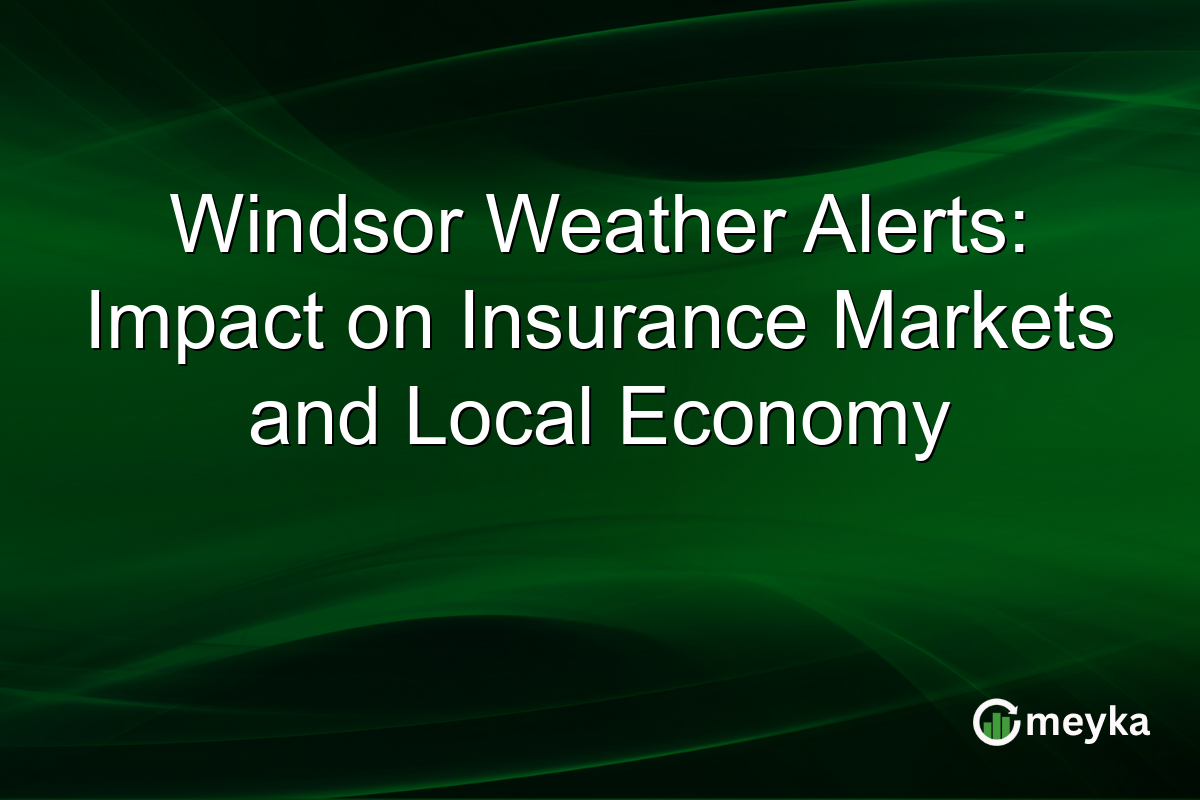Windsor Weather Alerts: Impact on Insurance Markets and Local Economy
Recent extreme weather events in Windsor have highlighted vulnerabilities in both the insurance markets and the local economy. The “Windsor weather impact” is a focal point for investors and business owners who need to navigate the challenges posed by environmental instability. With increasing weather alerts, understanding potential economic outcomes is paramount for long-term strategic planning.
Continue Reading on Meyka
This article is available in full on our main platform. Get access to complete analysis, stock insights, and more.
Read Full Article →





